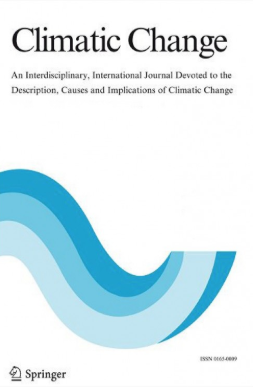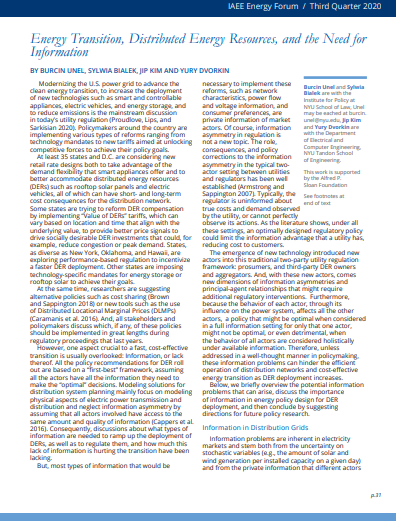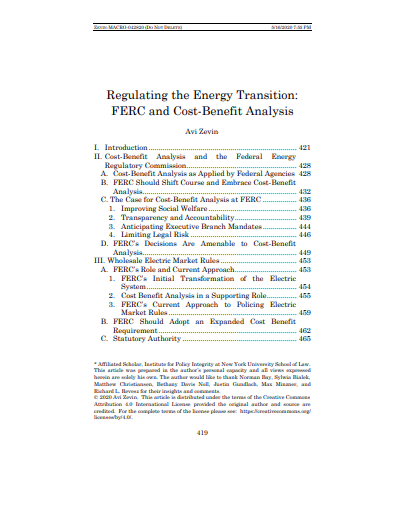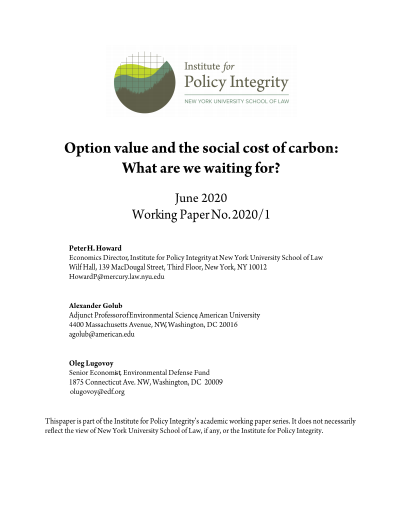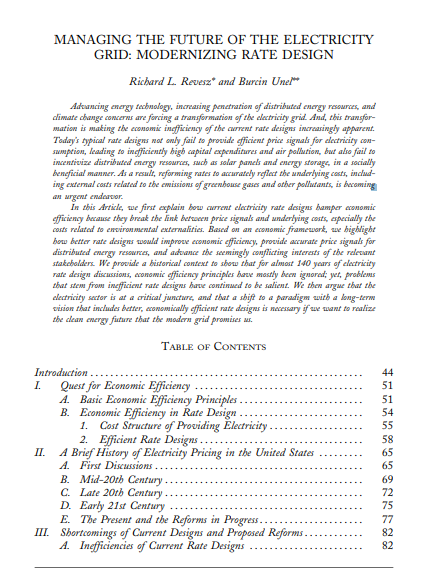-
Wisdom of the Experts
Using Survey Responses to Address Positive and Normative Uncertainties in Climate-Economic Models
The social cost of carbon (SCC) and the climate-economic models underlying this prominent US climate policy instrument are heavily affected by modeler opinion and therefore may not reflect the views of most climate economists. To test whether differences exist, we recalibrate key uncertain model parameters using formal expert elicitation: a multi-question online survey of individuals who have published scholarship on the economics of climate change. Read the article, published in Climatic Change.
-
Energy Transition, Distributed Energy Resources, and the Need for Information
Modernizing the U.S. power grid to advance the clean energy transition, to increase the deployment of new technologies such as smart and controllable appliances, electric vehicles, and energy storage, and to reduce emissions is the mainstream discussion in today’s utility regulation. Policymakers around the country are implementing various types of reforms ranging from technology mandates to new tariffs aimed at unlocking competitive forces to achieve their policy goals. We briefly overview the potential information problems that can arise, discuss the importance of information in energy policy design for DER deployment, and then conclude by suggesting directions for future policy research.
-
Regulating the Energy Transition
FERC and Cost-Benefit Analysis
This article, published in the Columbia Journal of Environmental Law, argues that, FERC’s management of this transition would be significantly enhanced if it embraced cost-benefit analysis—including accounting for important indirect costs and benefits such as the effect on climate change—to guide its decisionmaking. Changing course and adopting cost-benefit analysis will allow FERC to manage the energy transition while maximizing social welfare, enhancing transparency and accountability, and mitigating legal and political risk
-
Option Value and the Social Cost of Carbon
What Are We Waiting For?
Scientists and economists have long recognized that significant uncertainties and irreversibility characterize climate change. And yet, the social cost of carbon (SCC), the preeminent policy tool to address climate change applied by the U.S. government, does not include the option value (OV) that arises due to these characteristics. We demonstrate a simple methodology for approximating the OV underlying the SCC using the Bachelier formula
-
Managing the Future of the Electricity Grid: Modernizing Rate Design
This article, published in the Harvard Environmental Law Review, argues that the electricity sector is at a critical juncture, and that a shift to a paradigm with a long-term vision that includes better, economically efficient rate designs is necessary if we want to realize the clean energy future that the modern grid promises us.
Viewing all publications in Academic Articles/Working Papers

